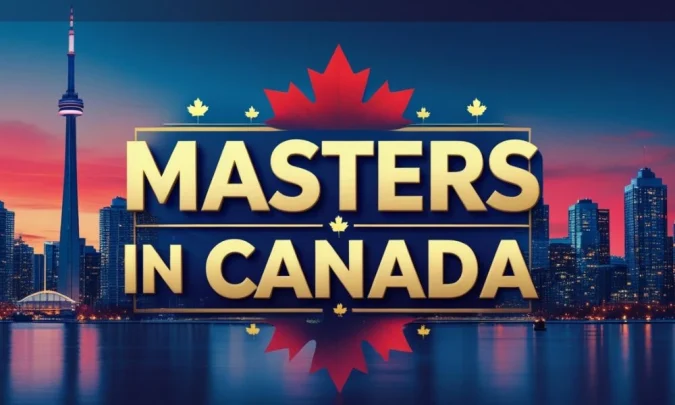
Canada continues to be one of the most sought-after destinations for higher education, and for good reason. With globally recognized universities, affordable tuition, post-graduation work opportunities, and welcoming immigration policies, studying for your master’s in Canada is a life-changing decision.
Whether you’re looking to dive into research, boost your career, or even settle in Canada after graduation, this guide covers everything you need to know about how to apply for a master’s program in Canada in 2025.
Why Choose Canada for Your Master’s Degree?
-
Globally Respected Education: Canadian universities consistently rank in the world’s top 200.
-
Affordable Tuition: Compared to the UK or US, Canada offers lower tuition with equal prestige.
-
Post-Study Work Opportunities: Get up to 3 years of post-graduate work experience through the PGWP.
-
Path to Permanent Residency: Education + Canadian work experience gives you a head start on PR.
-
Diverse and Inclusive: Join a vibrant international community with multicultural support.
Top Master’s Programs in Canada
Here are just a few world-class universities offering competitive master’s programs:
| University | Notable Master’s Programs |
|---|---|
| University of Toronto | Data Science, Public Health, Engineering |
| University of British Columbia (UBC) | Education, Forestry, Computer Science |
| McGill University | Law, Political Science, Biotechnology |
| University of Waterloo | Artificial Intelligence, Business, Engineering |
| McMaster University | Health Sciences, MBA, Environmental Studies |
Admission Requirements
To apply for a master’s in Canada, you typically need:
-
A Bachelor’s degree (usually 4 years)
-
Minimum GPA of 3.0/4.0 or equivalent
-
Proof of English or French proficiency (IELTS/TOEFL/TEF)
-
Statement of Purpose (SOP)
-
Letters of Recommendation (usually 2-3)
-
Resume/CV
-
Application Fee (CAD $100–$150)
Scholarships for Master’s Students in Canada
There are plenty of funding options for international master’s students:
1. Vanier Canada Graduate Scholarships
CAD $50,000/year for 3 years (for research-based graduate studies)
vanier.gc.ca
2. University of Waterloo Master’s Awards
Up to CAD $15,000/year
uwaterloo.ca
3. Ontario Graduate Scholarship (OGS)
CAD $15,000 for 1 academic year (two or three terms)
ontario.ca
4. UBC Four-Year Doctoral Fellowship (for thesis-based Master’s students transitioning to PhD)
Covers full tuition and living stipend
you.ubc.ca
Application Timeline for 2025 Intake
| Month | What to Do |
|---|---|
| April – June 2024 | Research programs and universities |
| July – September 2024 | Prepare documents, take language tests |
| October – December 2024 | Submit applications (deadlines vary) |
| Jan – March 2025 | Receive admission offers |
| May – August 2025 | Apply for student visa, prepare for departure |
| September 2025 | Begin your studies in Canada! 🎉 |
How to Apply for a Canadian Student Visa
Once you receive an admission letter, you can apply for a Study Permit:
-
Apply online at Canada.ca
-
Pay CAD $150 application fee
-
Provide:
-
Letter of Acceptance
-
Proof of funds (approx. CAD $20,000+)
-
Medical exam (if required)
-
Biometrics & passport
-